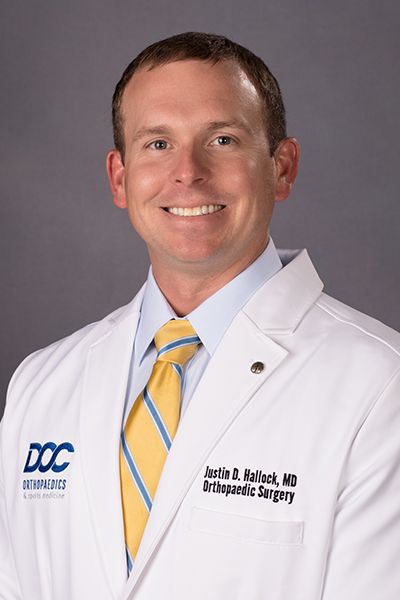
Football Shoulder Injuries
Football Shoulder Injuries
When it’s fall in the South, that can mean only one thing: football. And with football comes Friday night lights, Saturday afternoon tailgates, and, occasionally, injuries.
While the most common football injuries tend to be knee injuries, shoulders are susceptible, too. Like the knee, the shoulder is a complete joint that allows for complex movements. And similarly, the shoulder’s flexibility is what makes it prone to possible injury, particularly for athletes who are active in sports involving excessive, repetitive, and overhead motion like football. Even pediatric and adolescent athletes can be subject to these painful setbacks.
Let’s take a look at what you need to know to keep yourself or your child safe on the gridiron this season.
Train wisely
Avoiding these common shoulder injuries isn’t always possible in a contact sport like football, but there are preventative measures that athletes can take.
● Wear protective equipment: Having protective equipment that fits properly is crucial in football. Plastic protection absorbs shock from collisions, so bones receive less impact. Without this equipment, it’s more likely that the bones will break.
● Training: Gradually allow your body to adjust to the sport by easing into less strenuous practices and more relaxed preseason games. This will strengthen your shoulder muscles a little at a time while you’re throwing passes or playing during the regular season.
Watch for early warning signs
With the increase in organized youth sports, there has been an increase in shoulder pain and injuries in pediatric and adolescent athletes, especially in throwing sports like baseball. Although less common in this younger age group, shoulder injuries can still lead to long-term disabilities and deformities if not treated early.
That’s why it’s so important to watch for early signs of possible problems. Because these injuries often occur due to trauma, it’s likely you’ll know about a shoulder injury immediately. However, there are cases where shoulder injuries go unidentified and untreated. So if you’re dealing with any type of shoulder pain, especially if it gets worse at night or causes pain to when lifting the arm or stretching it forward, it’s important to see a physician.
Work with an expert
If you notice any early indications of shoulder problems – or experience a traumatic injury – it’s important to work closely with an orthopaedist who specializes in sports injuries. Dr. Justin Hallock, one of the specialists at DOC Orthopaedics and Sports Medicine in Decatur and Hartselle, is not only board certified in orthopaedic surgery, he also is fellowship trained in orthopaedic surgery specializing in sports medicine, including open and arthroscopic treatment of the shoulder. Dr. Hallock has vast experience with athletic coverage and has worked with teams at all levels from high schools and Division 1 colleges to the Memphis Grizzlies. He provides both non-surgical and surgical care of all orthopaedic ailments. Dr. Hallock’s extensive training and personalized approach to patient care means his patients enjoy thorough treatment and quick recovery so they can get back to pursuing their passions.
Since 1972, DOC Orthopaedics and Sports Medicine has been committed to providing exceptional orthopaedic care through innovative techniques, quality services, patient communication, and education. With specialties ranging from general orthopaedics and physical therapy to sports medicine, joint replacement and more, the doctors at DOC Orthopaedics and Sports Medicine can provide local expert care for any orthopaedic disorder or injury and help put your life back in motion.

